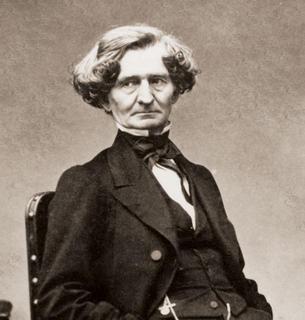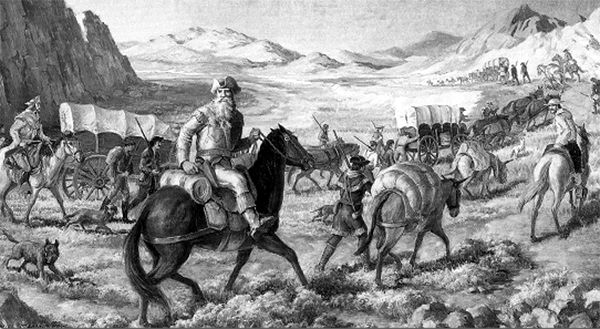A pamphlet is circulated in republican circles.
FLIPPIBIVIT DIPLOMACY
Cast of characters:
Chief President First Minister But Not Really of the Most August and Christian and Plainly Adorned Kingdom of Flippibivit, the Acting Duke of Avaria and Tricount of New Eastphaliia, Elmo Maurice Papillion Merlin Bathomere (commonly known as MB), the most brilliant writer and political theorist of his generation and well regarded around Flippibivit for his numerous hypothetical achievements;
Second First Minister President and Keeper of the Scrolls of the Most August and Christian and Plainly Adorned Kingdom of Flippibivit, Ambassador to the Empire of Egret and Trikingdom of Irembia, the Junior Count Duke of Popopcadia, Charlemagne Luxcroix Lesmey (commonly known as Catiline), the son of someone important, an angry man who likes to shout, and the author of all of Flippibivit's laws;
Prime Mover, First Lord of the Orators, and Best Man of the Empire of Egret and Trikingdom of Irembia, the Lord Tricount of South Pomerania, Henderson James Towntemple (commonly known as Lord Tom), a famous warrior and general who had never fought or commanded a battle and master manipulator.
Scene:
Lord Tom's drawing room in Lordonia, the capital of Egret. All characters are sitting down comfortably. MB and Catiline are exhausted from their long voyage and an even longer wait for Lord Tom.
Scene:
LORD TOM: Thank you for taking the time to pay me a visit, gentlemen. I understand you have some concerns about Egret's policies.
CATILINE (in a whining voice): You kept us waiting for hours you buff-
MB coughs
MB: Yes, you are so gracious to give us your time. And yes, we wish to voice our concerns in both a metaphysical and concrete manner.
LORD TOM: Ah, yes...
He gingerly picks up a cup of tea, which he places his finger in. He swirls his finger around for many moments in silence. Catiline is clearly becoming agitated.
CATILINE: Your war on the Equal Federation of Equally Liberated White Men in Anzerico is destroying our economy! People are starving because of you!
LORD TOM: Is that so? I had no idea.
CATILINE: It is so you fuc-
MB coughs again
MB: It is sad to say so but the ambassador is entirely correct, though he exaggerates to the level of twenty two percent. To be precise, merely the
majority of businesses in Flippibivit are bankrupt and three quarters of the population is starving. But, as Locke confirmed, this is only true on a purely physical sense. Corporeality is adversely affected by deleterious conditions but the natural relations between men in the great chain of being remain unaffected. That is, until natural relations are altered by a violent disturbance via historical deterministic cataclysms. But does a natural order truly exist and are we on proper moral grounds to proceed down this path of inquiry? We may never know. That being said, your war is proving to be one of these historical cataclysms that is violating the principles of liberal exchange and the alterations of cultural, economic, and scientific flows of information.
LORD TOM: Hmm...Locke indeed...
CATILINE: Your illegal blockade on Anzerico is preventing us from obtaining seeds for our vital peppercorn industry. We demand that you allow or vessels to pass unmolested.
LORD TOM: We are engaged in a war. The blockade is a legal act.
MB: To fall back on legality in this situation is specious and a logical fallacy, Prime Mover. Before I can address this point, we must ask what the meaning of the law is and what kind of law we are using. Law is a tool to govern men and put order to society, as Hammurabi decreed. Thus, in this scenario, it would be entirely to appropriate to discuss the field of law as it relates to the blockade. However, one must ask if we are referring to natural or man made law. Natural law governs all principles while man made law is limited. Let us first refer to the laws of men. While a state of war can alter the boundaries of law, nothing states that one is entitled to take from another. Thus, your appeal to legality is flawed and incorrect. But should we further expound on the nature of war? Caesar's Gallic Wars expands on this line of thought but I do not have the time to delve into this further. Let us return to natural law. The relations that govern men are determined by natural law and certain form of morality. Now, morality can be relative, but there is a basic morality in us all that results in the divine spark granted to us by the Lord, as Thomas Aquinas once said. To deny our nation the opportunity to acquire necessary goods and resources would cause great harm and suffering. It is a violation of natural law to create harm and suffering. Thus, natural law and the lack of evidence for any further laws dictate that the blockade is not legal.
LORD TOM: Yes it is. Anyway, you can't stop us. Your navy is laughable.
An awkward pause occurs.
CATILINE: What is the point of this war, anyhow? It is only disrupting world commerce and hurting every nation.
LORD TOM: To aid the Independent Empire of Mariachi.
CATILINE: Yes, but why? Mariaci is an embarrassing and impoverished mudhole and the land the Anzericoans want is empty.
LORD TOM: To reaffirm the cherished Egretian principles of sovereign interference and permission. We will starve the entire nation of Anzericoan to uphold our right to interfere in any nation we choose and to ensure that every state must get permission from us before they engage in diplomatic maneuvers. Also, the queen finds the emperor of Mariachi amusing and it is our sacred duty to keep our monarch amused.
CATILINE: I must admit that your last reason is compelling. Certainly it is our duty as subjects to make our kings, queens, and emperors in good spirits. Yet we still must protest your blockade.
LORD TOM: Noted. But it's staying and you can't do anything about it.
Lord Tom sticks out his tongue. Before Catiline can act, MB interjects hastily.
MB: Perhaps we can come to some kind of arrangement or compromise? As Hobbes stated, we are all imperfect beings corrupted by our very nature and it is necessary for the relationships between man and the bonds of society to keep this nature in check. Thus, being imperfect, it is permissible to enter into imperfect relations.
LORD TOM: Maybe.
CATILINE: Would you allow some goods that are clearly not weapons to pass?
LORD TOM: No, that would defeat the point of the blockade.
MB: Would Egret be amenable to compensating Flippibivit for the monetary value of the goods seized by your sailors and the economic damage done to our state? A reciprocal exchange is the bedrock of all contract law in your legal system, after all. But can an exchange truly be reciprocal? I believe there is error in such an approach. We must not be rigid in our thinking or else the relations that govern the conduct of society will be frustrated by attempts to achieve an impossible sense of equality. That approach is admirable but fallacious. Man must not be wedded to such natural rights but instead should be directed by the tenets of natural law. In this spirit of deference to the wisdom of tradition, we seek a justice not made by man but merely enforced by man and created by God. And so, as a great steward in the tradition of political philosophy, we humbly make this request.
LORD TOM: No.
CATILINE: Please reconsider.
LORD TOM: We can say that Flippibivit will be compensated but it will never be. That is the last thing we will say on the matter.
And so the ambassador and Chief President First Minister But Not Really returned to Flippibivit as heroes. The king ordered three hundred te deums to be sung in every church across the land as well as twenty canons to be fired every two hours in each village. The pope even sent a strand of cloth to the king to celebrate the accomplishment. The next month over eighty-five percent of Flippibivit was near death and the Acting Duke of Avaria wrote a new treatise reflecting all the knowledge he had gained on the nature of social and political relations.














